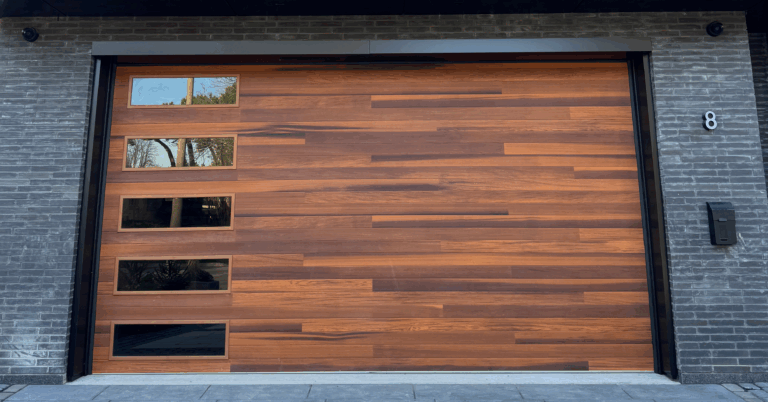CRM For Commercial Real Estate: Boosting Efficiency and Client Management
In the competitive world of commercial real estate, managing relationships, tracking leads, and closing deals efficiently is critical. CRM For Commercial Real Estate has become an indispensable tool that empowers brokers, agents, and property managers to streamline operations and enhance client interactions. This specialized CRM solution addresses the unique demands of the commercial property sector, helping organizations increase productivity and grow their portfolios.
What is CRM For Commercial Real Estate?
CRM for commercial real estate refers to customer relationship management software tailored specifically to meet the needs of commercial property professionals. Unlike generic CRMs, these systems provide tools designed for handling property listings, lease agreements, tenant communications, and transaction tracking—all within one platform.
Why Commercial Real Estate Firms Need CRM
The commercial real estate market is complex, with multiple stakeholders, high-value transactions, and long sales cycles. Without a robust system, tracking prospects and managing deals can quickly become overwhelming.
A dedicated CRM for commercial real estate provides:
-
Centralized property and client data
-
Automated follow-ups and reminders
-
Detailed reporting on sales pipelines
-
Enhanced communication management
-
Integration with market listing services
Key Features of CRM For Commercial Real Estate
The strength of CRM for commercial real estate lies in its tailored features that accommodate the intricate workflows of commercial real estate professionals.
Property and Lease Management
A commercial real estate CRM organizes listings with details such as square footage, zoning, lease terms, and price. It tracks lease renewals, expirations, and tenant contact information.
Lead and Pipeline Management
Tracking leads from initial inquiry through to lease or sale closing is crucial. CRM for commercial real estate offers pipeline visualization, scoring, and automated lead nurturing to ensure no opportunity slips through.
Client and Contact Management
A well-structured database of clients, investors, tenants, and vendors is essential. This CRM consolidates all communications, meeting notes, and documents linked to each contact.
Task Automation and Reminders
Managing multiple properties and clients means never missing an important date. The CRM automates reminders for inspections, renewals, and meetings, keeping teams on track.
Document Storage and Management
Commercial real estate involves extensive paperwork—contracts, proposals, lease agreements. The CRM acts as a secure repository accessible to authorized users.
Reporting and Analytics
Insightful reports on occupancy rates, sales performance, and client engagement help real estate firms make informed decisions and optimize strategies.
Integration Capabilities
CRM for commercial real estate often integrates with MLS platforms, marketing tools, and accounting software to provide a seamless workflow.
Benefits of CRM For Commercial Real Estate
Investing in a CRM solution designed for commercial real estate delivers clear advantages.
Enhanced Client Relationships
By tracking every interaction, preferences, and requirements, commercial real estate CRMs help personalize communication, leading to stronger client loyalty.
Increased Deal Closure Rates
Automated lead nurturing and pipeline management ensure consistent follow-ups, reducing lost opportunities and increasing successful deals.
Improved Productivity and Collaboration
Centralized data and task management allow teams to collaborate efficiently, sharing updates and documents in real time.
Data-Driven Decision Making
With real-time analytics and comprehensive reports, firms can identify trends, forecast revenues, and allocate resources effectively.
Better Compliance and Risk Management
Tracking lease terms and renewal dates reduces legal risks and ensures timely contract management.
Choosing the Right CRM For Commercial Real Estate
Selecting the right CRM depends on the size of your firm, portfolio complexity, and specific workflow needs. Consider these factors:
-
Industry-Specific Features: Ensure the CRM offers commercial real estate functionalities such as property management and lease tracking.
-
Ease of Use: The system should be user-friendly to maximize adoption.
-
Customization Options: Ability to tailor workflows and fields to your firm’s processes.
-
Mobile Access: Access on-the-go for agents visiting properties.
-
Integration Support: Compatibility with other tools you use.
-
Customer Support and Training: Vendor should offer ongoing support.
Implementation of CRM For Commercial Real Estate
Deploying CRM for commercial real estate requires careful planning:
-
Assessment of Needs
Identify pain points in your current processes and goals for CRM adoption. -
Vendor Evaluation
Compare different CRM platforms focusing on commercial real estate capabilities. -
Data Migration
Securely transfer client, property, and transaction data to the new system. -
Customization and Setup
Configure the CRM to match your business processes and branding. -
Staff Training
Provide thorough training sessions to ensure smooth adoption. -
Monitoring and Optimization
Continuously track CRM usage and optimize based on feedback.
Challenges When Using CRM For Commercial Real Estate
Adopting CRM solutions can bring challenges, including:
-
Resistance to change from staff accustomed to legacy systems.
-
Data inconsistency during migration.
-
Underutilization of features due to insufficient training.
Mitigating these requires clear communication of benefits, staged implementation, and ongoing support.
Frequently Asked Questions
What makes CRM for commercial real estate different from other CRMs?
Commercial real estate CRMs are built with property management, lease tracking, and complex transaction workflows in mind, unlike generic CRMs designed for sales or customer service alone.
Can CRM for commercial real estate improve tenant retention?
Yes, by managing lease renewals, maintenance requests, and timely communication, the CRM helps maintain positive tenant relationships and retention.
Is CRM software for commercial real estate scalable?
Most commercial real estate CRMs are scalable, designed to accommodate small teams to large firms with extensive portfolios.
How does CRM for commercial real estate handle document management?
It provides a secure centralized repository for contracts, proposals, leases, and correspondence, with access controls and version tracking.
Can I integrate commercial real estate CRM with MLS services?
Yes, many CRMs offer integrations with Multiple Listing Services for automated property updates and marketing.
How long does it take to implement CRM for commercial real estate?
Implementation typically takes 4 to 8 weeks, depending on customization needs and data migration complexities.
Does CRM for commercial real estate support mobile use?
Most modern CRMs offer mobile apps or responsive designs so agents can access information anytime, anywhere.
Conclusion
CRM for commercial real estate is a game-changer for property professionals who want to increase efficiency, close more deals, and maintain stronger client relationships. With specialized features like lease management, pipeline tracking, and document storage, these CRM solutions are designed to meet the unique demands of the commercial property sector. Choosing the right CRM, customizing it to your workflows, and training your team can help your firm stay competitive and successful in a fast-paced market.







